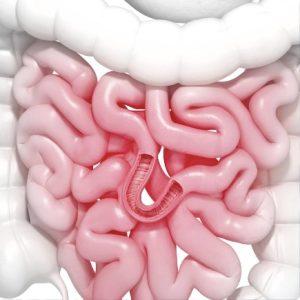
Intestinal Obstruction
Understanding Intestinal Obstruction:
Intestinal obstruction may be classified as mechanical or functional. Mechanical obstruction occurs due to narrowing or occlusion of the intestine, leading to the accumulation of air and fluid in the bowel. On the other hand, functional obstruction involves impaired bowel motility without a physical blockage, often observed post-surgeries as ‘paralytic ileus’.
The location, degree of narrowing, and underlying cause influence the presentation. Acute obstruction presents with more severe symptoms, while chronic obstruction may manifest with persistent low-grade symptoms.
Mechanical obstruction causes include intraluminal factors (e.g., neoplasms, foreign bodies), intramural factors (e.g., strictures, cancer, IBD), and extrinsic factors (e.g., adhesions, hernia, abscess).
Symptoms:
Intestinal Obstruction may manifest with various symptoms, including:
- Severe abdominal pain and cramping.
- Nausea and vomiting.
- Constipation or inability to pass gas.
- Abdominal swelling or bloating.
How Bangalore Gastro Centre Can Help:
 Prompt Diagnosis and Intervention:
Prompt Diagnosis and Intervention:
We employ state-of-the-art diagnostic techniques to accurately identify the underlying cause of Intestinal Obstruction.
Tailored Treatment Plans:
Our gastroenterologists design personalized treatment strategies tailored to your specific condition and health needs.
Compassionate Care and Support:
We understand the challenges posed by Intestinal Obstruction and offer compassionate support to help you navigate through your treatment journey.
Results:
Early intervention is key to managing Intestinal Obstruction effectively and minimizing complications. Timely diagnosis and appropriate treatment significantly improve outcomes and quality of life.
Potential Complications:
Untreated Intestinal Obstruction can lead to severe complications such as bowel perforation, infection, and tissue damage. Prompt medical attention is essential to avoid these risks.
Prevention:
While some causes of Intestinal Obstruction may not be preventable, maintaining a healthy lifestyle, avoiding risky behaviors, and seeking prompt medical care for any abdominal symptoms can help reduce the risk.
Meet Our Expert Gastroenterologists:
Our team of experienced gastroenterologists specializes in the diagnosis and treatment of Intestinal Obstruction, ensuring that you receive individualized care tailored to your needs.
Contact Information:
For appointments and inquiries, please contact us:
- Tel: 080-4688-8888
- Email: info@bangaloregastrocentre.com
- Visit our website www.bangaloregastrocentre.com for more information and to schedule a consultation.

